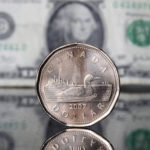The euro was slightly losing ground against the US dollar on Tuesday, but yet remained supported, as market players focus was still on the negotiations over the US budget matter.
EUR/USD slipped to a session low at 1.3558 at 4:40 GMT, after which consolidation followed at 1.3567, losing 0.10% on a daily basis. Support was likely to be received at October 2nd low, 1.3506, while resistance was to be met at October 4th high, 1.3632.
Market participants remained still wary making decisions, as so far little progress has been made regarding the budget crisis in the United States. US President Barack Obama challenged congressional Republicans to increase the nation’s debt limit by next week and said that he was willing to negotiate on fiscal matters once that is done and government funding is recovered.
This news came after on Sunday Republican House Speaker John Boehner said that the House will not support bills in favor of a complete re-activation of the government or raise the US debt limit unless agreement on spending cuts with the Democrats was reached.
However, the time frame for action was getting shorter, as US Treasury Secretary Jacob Lew has said earlier that Congress needed to raise the 16.7 trillion USD debt limit by October 17th or the nation may plunge into default on its debt obligations, the first one ever. “Despite the rhetoric, handwringing, name calling and finger pointing, the market believes a deal will ultimately be struck,” said Adrian Miller, director of fixed-income strategies at GMP Securities LLC in New York, cited by Bloomberg. “The markets are on edge, are defensive and increasingly concerned, but there is still hope that we will avoid a default.”
Meanwhile, it became clear that the surplus on Germanys trade balance rose less than expected in the month of August, reaching 13.1 billion EUR from 16.2 billion EUR a month ago. Preliminary estimates pointed an increase to 15.6 billion EUR.
On the other hand, according to seasonally adjusted data, German trade balance recorded a larger surplus than projected in August. The figure was at the amount of 15.6 billion EUR, as a month ago the recorded surplus was 15.0 billion EUR. Experts had anticipated a surplus of 15.1 billion EUR. Export figure increased in August, making up for the drop in July, but still the negative influence, caused by weaker demand in other Euro zone countries, was present. Export of German goods rose 1.0% in August on a monthly basis, but fell 5.4% on annual basis. Data suggested that export, usually considered to be the main force behind nations economic growth, has not yet regained its full potential. Despite that deliveries have begun to recover after the winter period, their performance was not yet dynamic enough. Export figure during the first eight months of this year compared to the same period in 2012 contracted 1.1%, while deliveries towards other Euro zone members fell 3.1%.
Also, Germanys current account recorded a smaller surplus than initially estimated in August, reaching 9.4 billion EUR instead of 13.5 billion EUR, from 14.2 billion EUR in July.
Later on trading Tuesday, Germany is to release a report on factory orders for August.
Elsewhere, the euro was steady against the sterling, with EUR/GBP cross ticking up a mere 0.02% to trade at 0.8441 at 7:22 GMT. In addition, EUR/JPY pair was gaining 0.30% for the day to trade at 131.75 at 7:22 GMT.





